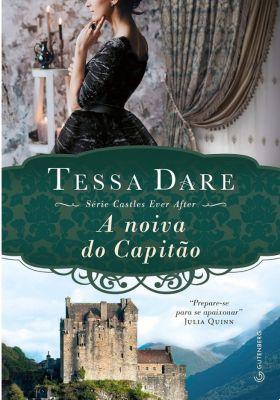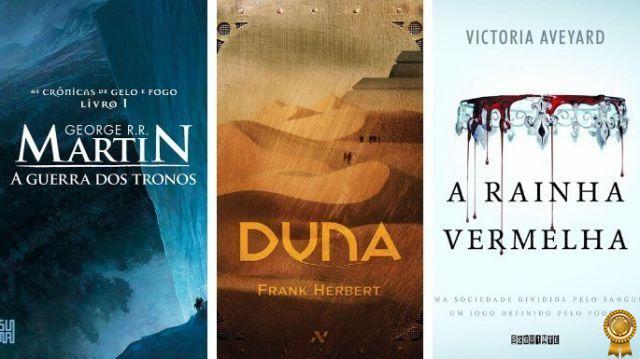According to literary critic Alfredo Bosi, Cecília Meireles (1901-1964) is “one of the greatest poetic voices in the Portuguese language” in the literary period that begins after 1930.
He was born in Rio de Janeiro (the same city where he died). Orphaned at the age of three, she spent her childhood at her maternal grandmother's house, who was Portuguese from the Azores. The Azorean ancestry perhaps explains the interest in the theme of the sea, present in many poems.
She graduated as a primary school teacher in 1917 at the Institute of Education in the then capital, Rio de Janeiro. She debuted in literature at just 18 years old, with the publication of Espectros.
The 12 best poems to immerse yourself in the work of Cecília Meireles" src="/images/posts/cc3395546fb33a03d1680bc6844d7bb3-0.jpg">
She was a professor of Brazilian Literature at the University of the Federal District and, in 1940, at the University of Texas, in the United States. She made many trips during this period: Mexico, India, Portugal. In this country, she gets recognition in literary circles.
The poetry of Cecília Meireles is at the meeting of the Symbolist tradition with Modernism. And perhaps it is exactly in this meeting that this poet's great contribution to modern Brazilian literature lies. Today it is impossible to know the good literature produced in Brazil without going through the magnificent verses of the author of Romanceiro da Inconfidência.
The 12 best poems
In 1938, Cecília Meireles became the first woman to be awarded by the Brazilian Academy of Letters, with the book Viagem. “Motivo”, which makes up this book, is one of her most recited poems. For critic Sílvio Castro, this poem is “a synthesis of Cecília Meireles' contribution to modern Brazilian poetry”: it has one foot in tradition and the other in the present time.
1 - Reason
I sing because the instant exists
and my life is complete.
I am neither happy nor sad:
I'm a poet.
Brother of elusive things,
I feel neither pleasure nor torment.
I go through nights and days
in the wind.
Whether I crumble or I build,
if I stay or if I disappear,
- I do not know I do not know. I don't know if I stay
or step.
I know I sing. And the song is everything.
Tem eternal blood a asa rimada.
And one day I know I'll be mute:
- nothing more.
The next poem speaks of pain in hard times. It was published in the 40s, a period marked by one of the most terrible wars in all of history.
2 – Declaration of love in times of war
Lady, I will love you in a silken alcove,
among pale marbles and tall branches of roses,
and I will sing serene arias for you
with moonlight and boats, in fine melodious waters.
(In my land, men, Madam,
walked in the fields now.)
To see your eyes, I'll light the candles
that make eyelashes and diamonds smooth.
Your pearls will walk through my fingers,
— for my soul, the sands of these limpid moments.
(In my land, men, Madam,
begin to suffer now.)
We will be so alone, among the dense curtains,
and so serious will be our deep mirrors
that I can calm my tears
by the crystal hills of your knees.
(In my land, men, Madam,
are being killed, now.)
You are my cypress tree, and the window and the pillar
and the statue that remains, — with her ivy dress;
the bird a Roman asks the last question of,
and the flower that comes in spring's resurrected hand.
(In my land, men, Madam,
rot in the field, now...)
The following two poems are from the book Vaga Música (1942), of symbolist influence.
Symbolism is a literary movement of the second half of the XNUMXth century that represents a break with Realism. Symbolist poetry tends to be more spiritual. His language is more suggestive, musical, metaphorical.
At the beginning of her literary career, Cecília Meireles was linked to the group of neo-symbolist writers at Festa magazine. Although this phase was fleeting, critics such as Sílvio Castro argue that Cecília Meireles never completely abandons Symbolism in all of her work.
The first poem is a great example of Symbolist aesthetics. Try to notice alliterations (expressive repetitions of sounds) and images. The second can be seen as a portrait of the decadent, itinerant poet, characteristic of French Symbolism at the end of the XNUMXth century.
3 - I waltz
How waltzes break up
by long aerial pianos
that the night wraps itself in its rains!
What tenderness on our eyelids,
by the gentle exile of gestures
and old music profiles!
The dull ivories remember,
with a disillusioned grace,
the aura of dead beauty.
People of dreams, without memory,
intertwined, led,
through halls of hope and doubt.
And they were so light, in those waltzes!
And there were tears between
your necklaces and your gloves!
And they spoke of their sorrows, waltzing, and delicately,
with a tight voice and wet eyelashes!
Ah, so far, so far, the halls...
Take away the chandeliers and the lives,
sad love, humble madness...
Only the waltzes remain
spinning blind and alone,
Without the inhabitants of music!
4 – Late night song
High night, quiet moon,
cold walls, shallow beach.
Walk, walk, than a poet
You don't need a home.
It ends at the last porta.
The rest is abandoned land.
A poet, in the dead night,
does not need sleep.
Walk... Lose your step
in the night, also lost.
A poet, at the mercy of space,
nor need life.
Walk... - while consenting
God let the night be gone.
Because the poet, indifferent,
Walk by walk – only.
It doesn't need anything.
The next two poems are good examples of working with rhythm through metrics (in this case, the larger rounds). They are also two representative poems of the poet's intimate lyricism, due to the manifestation of the state of soul of the “I”.
5 – Take the opponent
I have phases, like the moon
stages of hidden walking,
stages of coming to the street...
Loss of my life!
Loss of my life!
I have stages of being yours,
I have others to be alone
Phases that come and go,
in the secret calendar
that an arbitrary astrologer
invented for my use.
And melancholy swirls
your endless spin!
I don't meet anyone
(I have phases, like the moon...)
On the day someone is mine
It's not the day for me to be yours...
And when that day comes,
the other disappeared...
6 – When my face beholds
When my face beholds,
the mirror shatters:
to see how time passes
and my grief does not pass away.
Bitter field gives life,
who sowed you hard,
that those who do not kill themselves with anger
die of pure sadness?
The 12 best poems to immerse yourself in the work of Cecília Meireles" src="/images/posts/cc3395546fb33a03d1680bc6844d7bb3-1.jpg">
“Portrait” and “Discurso” are also in the line of intimate lyricism. In “Portrait”, again the mirror and the anguish related to the passage of time appear.
7 – Portrait
I didn't have this face today,
so calm, so sad, so thin,
nor these eyes so empty,
nor the bitter lip.
I didn't have these hands without strength,
so still cold and dead;
I didn't have that heart
that doesn't even show.
I didn't notice this change,
so simple, so right, so easy:
– In which mirror did it get lost?
my face?
8 - Speech
A poet is always a brother to wind and water:
leave your rhythm wherever you go.
I come from far and I go far:
but I searched the ground for the signs of my path
and I saw nothing, because the grass grew and the snakes
walked.
I also looked in the sky for an indication of a trajectory,
but there were always many clouds.
And the workers of Babel committed suicide.
So here I am, singing.
If I don't even know where I am,
how can I expect any ear to hear me?
Oh! If I don't even know who I am,
How can I expect someone to like me?
The most famous book by Cecília Meireles is undoubtedly the Romanceiro da Inconfidência, from 1953. These are poems that are historically located in Minas Gerais in the XNUMXth century, from the discovery of gold to the Inconfidência (a movement led by Tiradentes). From the book, two poems are included in this list: the first due to the strength and relevance of the criticism of the “great opportunists”; and the second, for dealing precisely with the persecuted, the true holders of “glory”.
9 – Romance LXXXI or Of the Illustrious Assassins
O great opportunists,
on the paper bent over,
that you calculate world and life
in tales, doblas, crossed,
that draw vast rubrics
and interlaced signals,
with tall slender feathers
soaked in sins!
O solemn characters
that you drag you called
like auriverde peacocks
their glittering garments,
- all that power you have
confuses your senses:
the glory you love is one of those
who are persecuted by you.
Get up from these tables,
come out of your frames,
see what black dungeons,
what safe fortresses,
what a heavy weight of handcuffs,
what deep graves
born of your feathers,
of your signatures!
consider in the mystery
two foolish humans,
and no pole always uncertain
of men and destinies!
By sentences, by decrees,
you would look divine:
and today you are, in eternal time,
as illustrious assassins.
O superb titleholders,
so disdainful and haughty!
By fictitious austerity,
vain reasons, false motives,
in vain snares:
– your dead are more alive;
and upon you from afar open
big thoughtful eyes.
10 – Speak to the dead rebels
darkness of night,
woolly coat
we curved shoulders
from the high mountains
clusters...
now all
lies in silence:
love, envy,
hatred, innocence,
in the immense time
if they are taking...
coarse gravel
of human life...
proud blacks,
naive audacity,
and pretenses
and cowardice
(and cowardice!)
go around
in the immense time,
– to the unforgiving water
of immense time,
running loose,
with your rude
misery exposed...
night stop,
suspended in mist:
no, they don't see each other
the bottom beds...
But on the horizon
what is memory
of eternity,
refer the clash
of ancient hours,
of ancient facts,
of ancient men.
and here we stay
all contrite,
listening in the fog
the dissatisfied,
submerged course
this torrent
from purgatory...
Which ones fall
in exhausted crimes,
which ones go up
purified?
To close, two poems chosen from the famous Ou Isto ou Aquilo, from 1965. A book of children's poems with so much musicality that it is even possible to sing them.
11 - Either this or that
Or if there is rain and there is no sun,
or if there is sun and there is no rain!
Or if you put on the glove and don't put on the ring,
or you put on the ring and don't put on the glove!
Who rises in the air does not stay on the ground,
who stays on the ground does not rise in the air.
It is a great pity that you cannot
be in both places at the same time!
Or I save the money and don't buy the candy,
or buy the candy and spend the money.
Either this or that: either this or that...
and I live choosing all day long!
I don't know if I play, I don't know if I study,
whether I run away or stay calm.
But I still couldn't understand
which is better: if it is this or that.
The poem "Or this or that" was recited on the Quintal da Cultura program in 2012.
Quintal da Cultura - Either this or that - 10/05/1212 – Flood
Call Alexander!
Party!
Look at the rain coming!
It's the flood.
Look at the ground that runs away with the rain...
Look at the rain that drenches us.
Put the key in the lock.
Close the door because of the rain,
look how the street fills up!
When it rains, put the kettle on
in the fire: look at the flame! Look at the spark!
Look at the rain on the bundles of firewood!
Let's have tea, because the rain
it's so much that I don't even wear a galosh
you can walk on the crowded street!
Call Alexander!
Party!


























